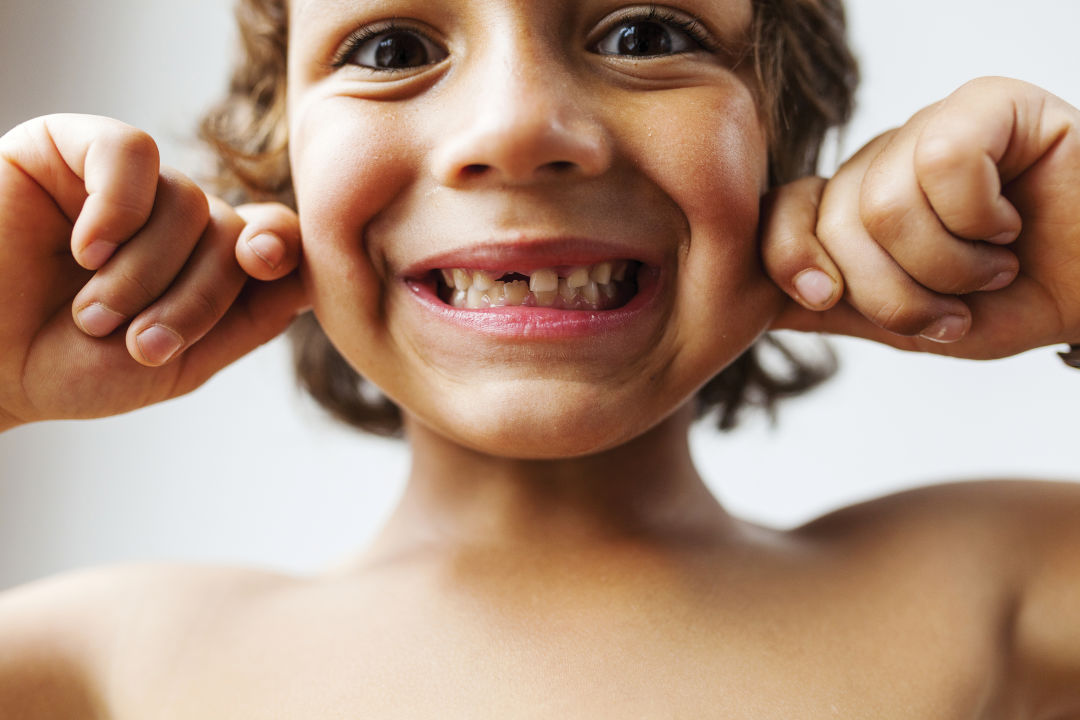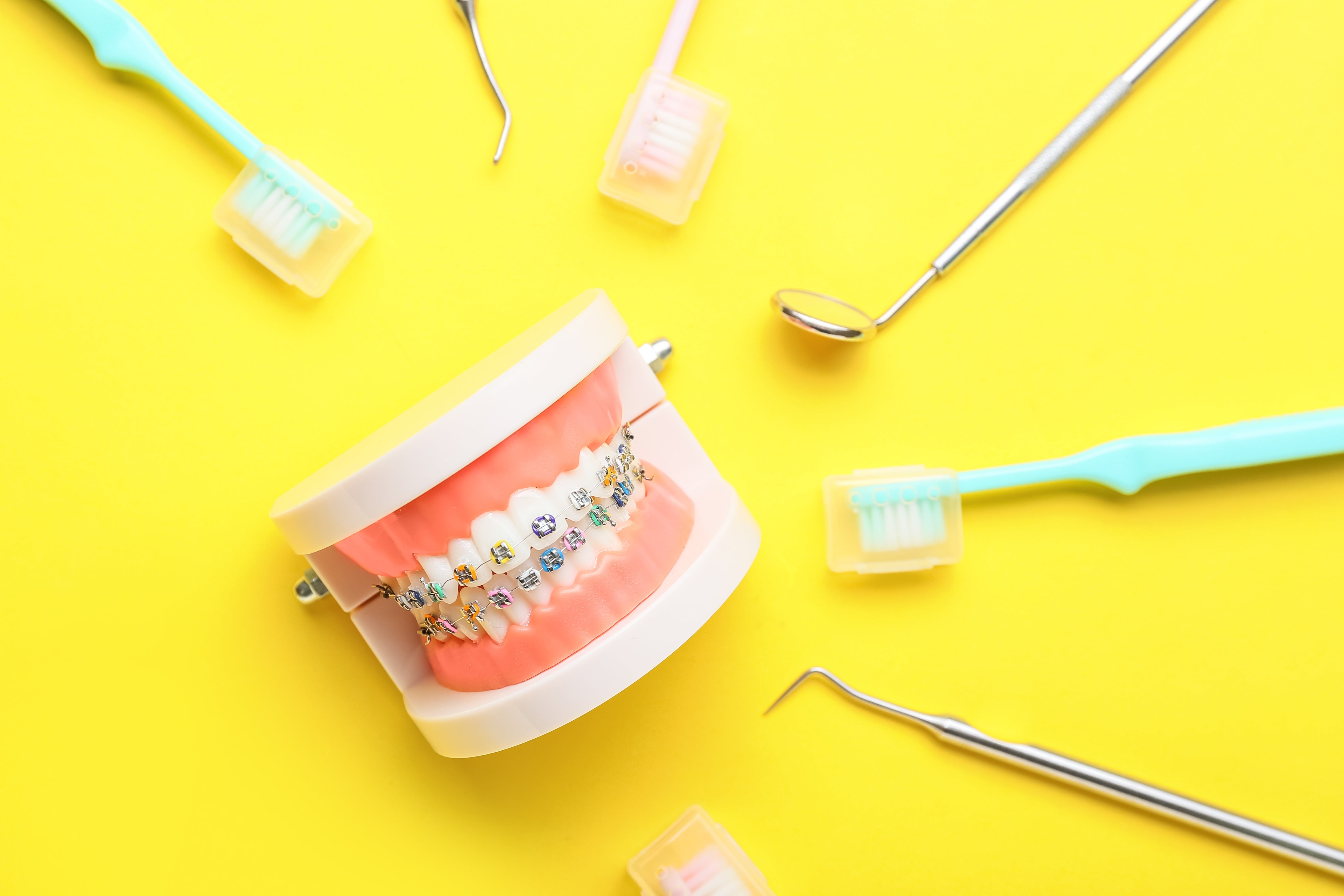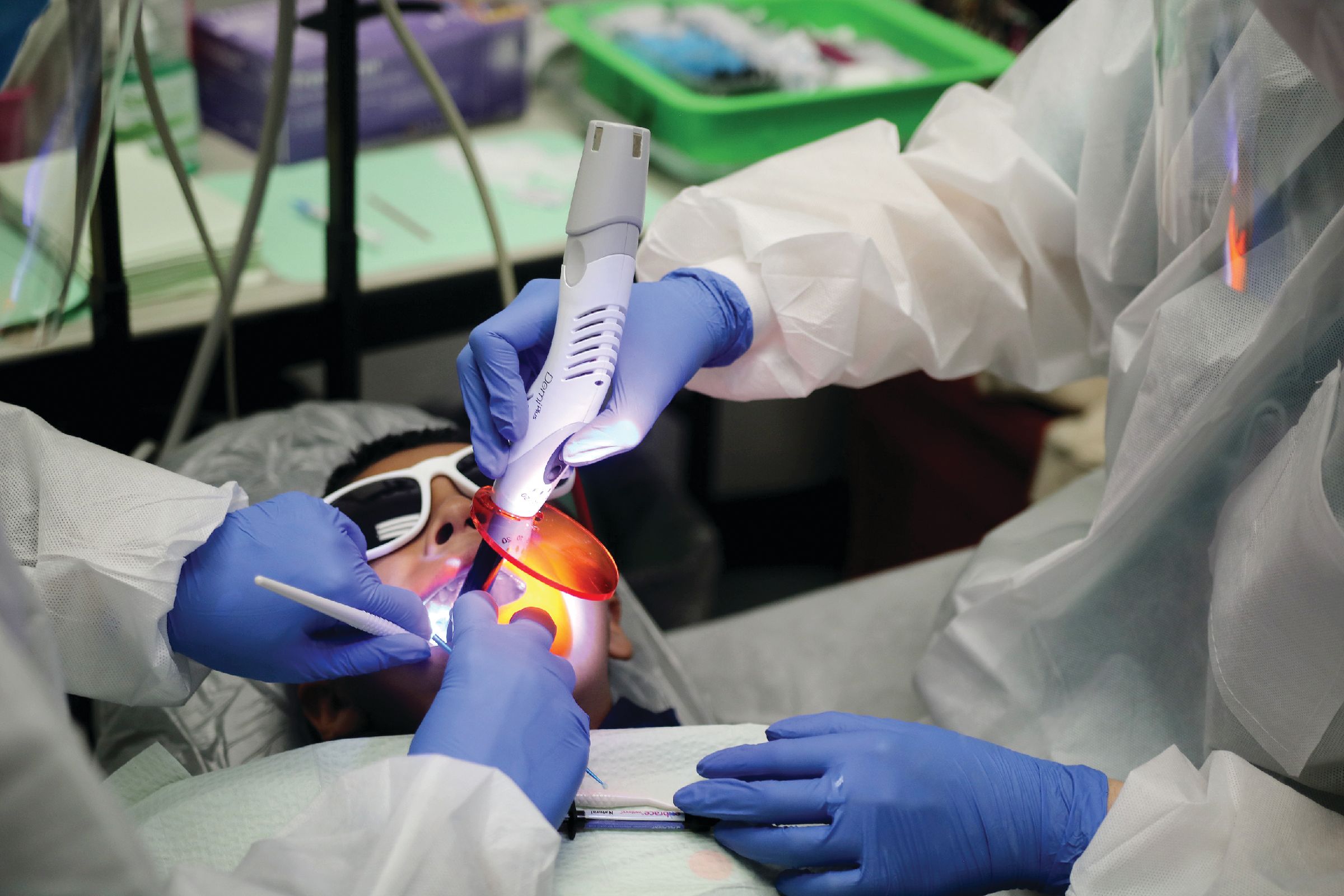5 Questions Parents Have About Their Child's Teeth

Image: Shutterstock.com
Many shrug off a dentist visit for a tiny human with only a handful of teeth. In fact, according to the American Academy of Pediatric Dentistry, only about 25 percent of parents include the first-year dental checkup as part of the normal round of doctor visits. But that’s a mistake. We spoke with Rita Cammarata, past president of the Texas Dental Association and a Houston-based pediatric dentist, for a crash course on kids’ oral health from birth onward.
Do I really need to brush my baby’s teeth?
“Definitely brush and floss,” Cammarata says. Parents should start brushing with a small dab of fluoride toothpaste as soon as teeth appear—usually around six months—and Cammarata says you can begin flossing as early as age 2. You can hold off on the mouthwash; the important part is to make dental care an everyday routine.
How do dentists treat a patient who can’t even sit in the exam chair?
While the child is still in the squirmy-inchworm stage of life, parents assist in what’s called a knee-to-knee exam, in which parent and dentist sit across from each other, knees touching. The patient’s head rests in the parent’s lap, their feet in the dentist’s. “That gives the child comfort since Mom’s holding them,” Cammarata says, “but it also allows the parents a view they don’t usually get.” The three-person dance is usually unnecessary by the third visit when, at around 2 or 3 years old, the patient can sit up independently.
Okay, I get that it’s important. What if my kid is afraid of the dentist?
“Distraction is always good,” says Cammarata. “We kind of want them to think they’re only here to play, and that we’ll peek at their teeth really quick.” That’s why most pediatric dentist offices resemble a rec room as much as they do a doctor’s office, with many decked out with video games, Disney movies, toys, puzzles, and other goodies. Parents should remain calm and confident throughout the visit; if they’re stressed, Cammarata says, “kids can read that.” Once kids are old enough, she further uses what she calls a tell-show-do process, which explains and demonstrates a procedure before it’s performed. “I find most people—kids or adults—are just afraid of the unknown,” she says.
Should I bother getting fluoride tablets?
Houston’s public water system adds a small amount of fluoride that bolsters enamel, so no, it’s not necessary. Exceptions include families that use reverse-osmosis water filtration, which strips drinking water of fluoride, and ones that consume large amounts of bottled water, which isn’t fluoridated. In those situations, tablets are an option—and not a bad one, considering they’re chewable and come in kid-friendly flavors like vanilla and grape.
Why should I spend all this time and money on teeth that are going to fall out?
“Baby teeth” is a bit of a misnomer, since the last stragglers sometimes hang on until the tween years. In the meantime, cavities are painful, missing teeth can inhibit speech development, and the aesthetics have real social consequences (remember, kids can be mean). Cammarata has seen neglected oral infections that snowball into gruesome swollen abscesses that get “pretty scary.” The bottom line: “Prevention is not costly,” she says. “What becomes costly is when things are not addressed early.”




